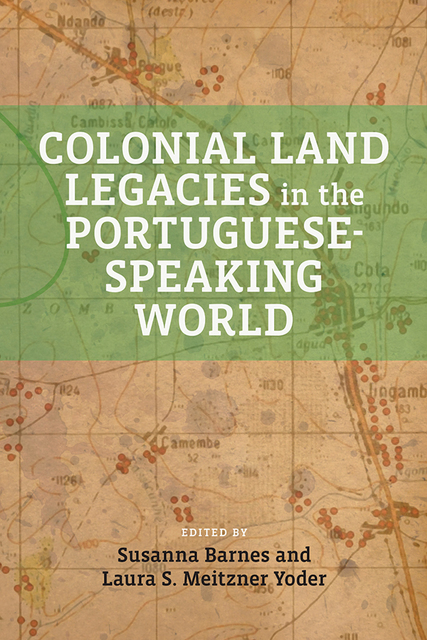Colonial Land Legacies in the Portuguese-Speaking World
Colonial Land Legacies in the Portuguese-Speaking World presents a comparative exploration of the enduring impacts of Portuguese colonial land governance in Portugal and across five former Portuguese colonies: Brazil, Angola, Mozambique, Flores, and Portuguese Timor. Through ethnographic, historical, and legal analyses, the book investigates how colonial land policies and interventions were not simply implemented and forgotten but have shaped contemporary land access, governance, and socio-economic structures in profound ways.
Portuguese colonialism was shaped by shifting political and economic priorities. From trading routes to plantation economies and extractive industries, land became central to Portuguese colonial interests. Colonial Land Legacies in the Portuguese-Speaking World investigates the bureaucratic mechanisms employed by Portuguese authorities to regulate land, highlighting how these systems were frequently manipulated by elites to consolidate power and control over resources. It explores Indigenous-settler entanglements, illustrating how colonial land policies interacted with local governance systems, leading to contested and hybrid forms of land control shaped by both resistance and adaptation. Finally, it focuses on the global capitalist motivations driving land policies, particularly the use of large-scale concessions for plantations, and how these practices continue to shape contemporary land ownership and economic inequalities in post-colonial contexts.
Colonial Land Legacies in the Portuguese-Speaking World is a critical and comparative analysis of colonial land governance and its afterlives. It highlights how these legacies continue to shape contemporary struggles over land, making it essential to address them in the pursuit of more equitable land governance. Through its case studies, the book contributes to broader discussions on the relationships among land, power, and colonialism, offering insights into the ongoing challenges of land policy and practice in post-colonial contexts.
Resources
Resource Collections
Download by Chapter
Collection
Single Resources
PDF PDF Chapter 11. Colonial Concessions: The Antinomies of Land Policy in Portuguese Timor
PDF Chapter 10. Land Governance as a Source of Legal Opportunities in Struggles Around Large-Scale Land Acquisitions in Mozambique
PDF Chapter 9. The Trajectory of the Plantation System in Mozambique: The Case of Madal in Micaúne
PDF Part III: Economic Imperatives and Global Articulations
PDF Chapter 8. The Remaking of Territories and Political Institutions: Community Land Delimitation in Northern Mozambique
PDF Chapter 7. The Impact of Portuguese Development Thought and Practice on Land Relations in the Late Portuguese Colonial Period
PDF Chapter 6. Land Access in a Slave Society: The Case of Maranhão Province, Northern Brazil
PDF Chapter 5. Dutch Colonialism and Portuguese Land Legacies in Flores
PDF Part II: Indigenous-Settler Entanglements
Metadata
- isbn9781773856360
- publisherUniversity of Calgary Press
- publisher placeCalgary, AB
- restrictionsCC BY-NC-ND 4.0
- rightsThis Open Access work is published under a Creative Commons licence.
- series number5
- series titleGlobal Indigenous Issues

